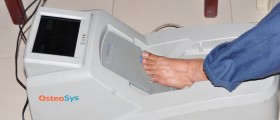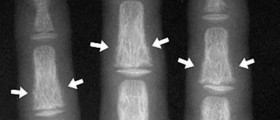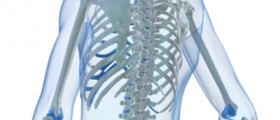
Fosamax belongs to the group of medications called biophosphonates and is used for the treatment and prevention of postmenopausal osteoporosis and a type of osteoporosis induced by steroids, as well as the treatment of Paget’s bone disease. Fosamax slows down the bone loss and increases the bone mass which is beneficial in preventing bone fractures.
Fosamax should be taken with a full glass of plain water and the patient has to sit upright or stand up for at least half an hour after ingestion. It should be done first thing in the morning before eating or drinking anything and after it’s been ingested one shouldn’t eat or drink anything but plain water and shouldn’t ingest any other medications, vitamins or calcium. These precautions are very important because Fosamax can cause serious problems in the stomach and the esophagus.
Some patients have experienced osteonecrosis in the jaw, which causes pain, swelling, and numbness in the jaw as well as loose teeth, gum infections and slow healing of all conditions in the mouth. Chemotherapy, radiation and steroids raise the risk of osteonecrosis development in the jaw.
Fosamax is not taken by itself and is just a part of a treatment program which also includes diet changes, exercises and various medical and nutritional supplements.
Fosamax should be taken by strictly following the exact directions prescribed by the doctor. It is usually taken once a day or once a week. One should always swallow the whole pill without sucking or chewing it first. The patient’s bone mineral density needs to be tested on a regular basis in order to take full advantage of the medication. Fosamax should be stored in a cool and dry place.
Alendronate has caused fever in some patients which received it intravenously. Sometimes rare instances of asthenia and peripheral edema may occur. Various complex esophageal conditions may be triggered during the treatment. Synergistic influence of Alendronate and naproxen develops gastric ulcers. Other minor effects in the gastrointestinal tract include pain, nausea, diarrhea, flatulence and constipation. Higher dosages usually cause more adverse side effects such as taste perversion, but that only happened on rare occasions.
Inhibited bone resorption sometimes causes mild reductions in serum calcium and the levels of phosphate. Pain in the joints, muscles and bones can occur occasionally. Swollen joints are also not that uncommon. Dizziness, vertigo and headaches are among the rarest of all reported side effects. Eyes can be exposed to iritis, scleritis, uveitis and certain types of conjunctivitis. Alendronate can also induce asthma attacks.








_f_280x120.jpg)








Your thoughts on this
Loading...